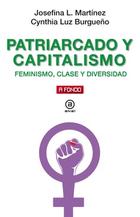While the ideas of feminism are transformed into material force in the streets and assemblies, in workplaces and institutes, important strategic debates cross the movement: what is the relationship between the oppression of women and capitalism?; Is feminism possible for most women other than anti-racist and anti-capitalist?; What are the social alliances we need to weave with these goals?
Throughout history, capitalism has shown enormous capacity to try to assimilate social movements and domesticating them, transforming them into new "niches" for consumption. That is why it is important to make the policies of liberal feminism visible: while some women like Ana Botín of Banco Santander are at the forefront of large multinational companies, there are millions who face every day job precariousness, cuts, racism and xenophobia. The question of class crosses the genre and delimits...read more










